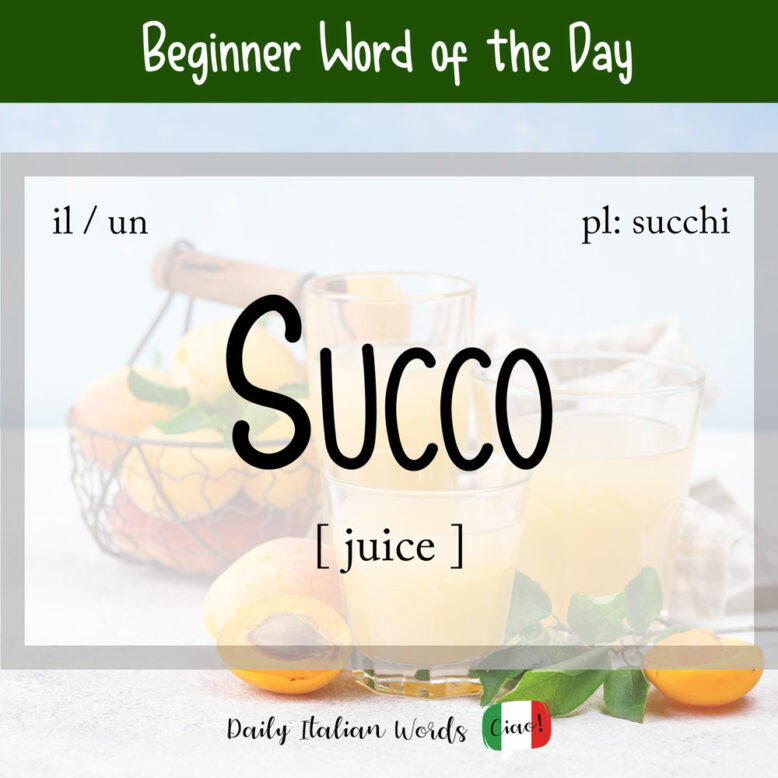The Italian word succo (plural: succhi), meaning juice in English, comes from the Latin succus. An easy way to remember this word is to think of the term succulent (full of juice).

It is closely related to the verb succhiare meaning to suck, presumably because at the time, people would suck on the fruit to extract the juice.
Bevo il succo ogni mattina a colazione.
I drink juice every morning at breakfast.

There are a number of different kinds of fruit juices (succhi di frutta) you can buy in Italy. Below are some of the most popular:
- succo di mela = apple juice
- succo d’arancia = orange juice
- succo di limone = lemon juice
- succo di pesca = peach juice
- succo di pomodoro = tomato juice
The spremuta, which comes from the verb spremere (to squeeze), is a special kind of juice made from freshly squeezed fruit. If you’re at a café and decide that you would prefer a fresh glass of orange juice made on the premises to the tinned or bottled kind, make sure to ask for a spremuta rather than a succo.
No, non voglio il succo d’arancia…preferirei la spremuta.
No, I don’t want the orange juice…I’d prefer the freshly squeezed juice.
Succo is also the word used when talking about the gist or heart of an argument or discussion. Il succo della questione translates as the heart of the matter whereas il succo del discorso means the takeaway message or the overall gist.
In anatomical terms, succo can also translate as secretion, though that’s probably not something you want to think about while enjoying a nice glass of fresh juice!
Il succo gastrico è una secrezione prodotta dallo stomaco.
Gastric juice is a secretion produced by the stomach.
Heather Broster is a graduate with honours in linguistics from the University of Western Ontario. She is an aspiring polyglot, proficient in English and Italian, as well as Japanese, Welsh, and French to varying degrees of fluency. Originally from Toronto, Heather has resided in various countries, notably Italy for a period of six years. Her primary focus lies in the fields of language acquisition, education, and bilingual instruction.


